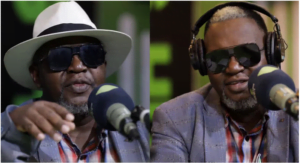After a decade-long exclusion, the United Kingdom has officially removed the ban on Robert Kyagulanyi, leader of the National Unity Platform (NUP), commonly recognized as Bobi Wine. The initial ban was a result of his controversial anti-gay lyrics in 2014, where he encouraged the public to take action against individuals he labeled as “battymen.”
Human rights activists applied substantial pressure on the UK’s Home Office, urging Kyagulanyi’s entry denial and the cancellation of his planned performance at the Troxy Arena in the UK. As a result, the Home Office has kept the singer-turned-politician away from England since then. Kyagulanyi conveyed his joy regarding the recent development in a short statement on Sunday morning.
“I am pleased to share that the UK’s ban on my entry has been lifted after over a decade, and I am looking forward to visiting the UK,” he announced.
He expressed gratitude to the legal team in the UK for their unwavering efforts and to the People Power diaspora supporters who continuously advocated for his cause through protests.
“Their primary argument has been the unfairness of allowing General Museveni, a widely recognized tyrant, while barring me, who, along with many others, is striving to build a free and democratic country,” he remarked.
Kyagulanyi engaged in discussions with British diplomats, international lawyers, and activists to facilitate his travel to the UK. He was compelled to cancel two planned performances in Birmingham and London that would have supported the Ugandan drama and music group, the Ebonies, due to objections from gay rights campaigners.
A change.org petition highlighted his songs’ overtly homophobic lyrics and their incitement of violence against the LGBTQ+ community. Specific lyrics were cited, such as “Burn all the batty man. All Ugandans get behind me and fight the batty man.”
The UK’s Criminal Justice and Immigration Act of 2008 forbids inciting hatred on the basis of sexual orientation. When approached about Wine’s claims, the UK Home Office declined to comment on individual cases.
Before the visa decision was disclosed, Kyagulanyi clarified his stance on homosexuality and freedom of speech, stating, “I personally do not intend to threaten the life of any individual based on their sexual orientation; I simply disagree with them [homosexuals]. This is my opinion and happens to be that of 99 per cent of Ugandans.”
He added, “I hope that proponents of homosexuality, who pride themselves on their liberalism and support for human rights, will permit my right of expression, even if they might not be comfortable with my opinion.”
Shortly after this incident, Uganda’s Constitutional court overturned a ruling that would have subjected homosexuals to life imprisonment, seen as a victory for gay rights activists. However, homosexuality remains illegal in the country.
Kyagulanyi rose to fame through socially-conscious songs addressing the people’s issues. His song “Ghetto” in 2012 challenged Kampala’s authorities, resulting in a ban from the radio but gaining a loyal following among less privileged backgrounds.
He also criticized city director Jennifer Musisi in the track “Tugambile Ku Jennifer,” accusing her policies of favoring the upper and middle classes. Despite the ban, his fan base continued to grow.
Subsequently, Musisi endorsed Kyagulanyi as a Kampala City Carnival celebrity, commissioning him to produce commercials and jingles for the celebrations.
President Museveni assented to the anti-homosexuality law, drawing condemnation from Western countries and the risk of sanctions from aid donors, including the death penalty for “aggravated homosexuality” and a 20-year sentence for “promoting” homosexuality.
United States President Joe Biden labeled the move “a tragic violation” of human rights and announced a reassessment of the implications of the law on U.S. engagement with Uganda.
![]()









